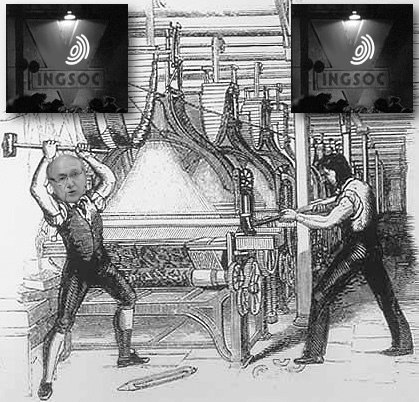

THE EPO under Battistelli strives to replace examiners with machines. Anyone with a clue about science, i.e. not Battistelli, would immediately know that it's bound to fail and it's already showing. This is what happens when politicians are put in charge of a patent office and anything a company like Google tells them they will swallow whole. They lack sceptical skills; their main skill is lying by omission, cleverly-worded non-denying denials and so on. This is why the EPO is in shambles.
"This is what happens when politicians are put in charge of a patent office and anything a company like Google tells them they will swallow whole."This is nonsense. Never mind how nonsensical patents on designs tend to be (just look what happens to Apple's design patents at the SCOTUS and the EPO). There are many purely technical reasons why this won't work and those who claim they can achieve this may as well just literally sell snake oil. In order to 'automatically' analyse patents one must grasp the semantics, use memory or deep knowledge of existing patents in a certain area, etc. That's why there's no substitute to highly experienced patent examiners in their respective fields. The more patents they have seen and become familiar with, the better prior art analysis (and reporting) can be carried out. It makes stakeholders happy. Crucial here is also lack of duplication, e.g. overpatenting. It's a lot like peer review. A day or so later (after the above snake oil from Brunel) the following self-promotional nonsense got published as well. It says "PatentDive starts with an easy to understand assessment of what kind of patent an entrepreneur may need. Their are two categories, Appearance and Functionality. The platform explains that appearance dictates a design patent to protect the appearance and shape. If it’s functionality the startup is looking to protect, PatentDive points you towards a utility patent."
"Will there be patents on patenting patent-generating machines? This can get recursive and outright ridiculous."What we have here is proprietary software that would neither work nor save time. Last year there were many articles (dozens in English) about computer-generated patents and what these would mean (their total number, the assigned inventor and so on). We compared that to financial trading using algorithms -- a growing ethical and practical problem in economics.
We worry that those who can fool the Battistellis of the world are so eager to replace people with machines (it's profitable to the snake oil merchants) that they have completely lost touch with the purpose of patent systems and how these are supposed to function. Will there be patents on systems for filing patents? Or patents on patent-generating machines? Will there be patents on patenting patent-generating machines? This can get recursive and outright ridiculous. ⬆